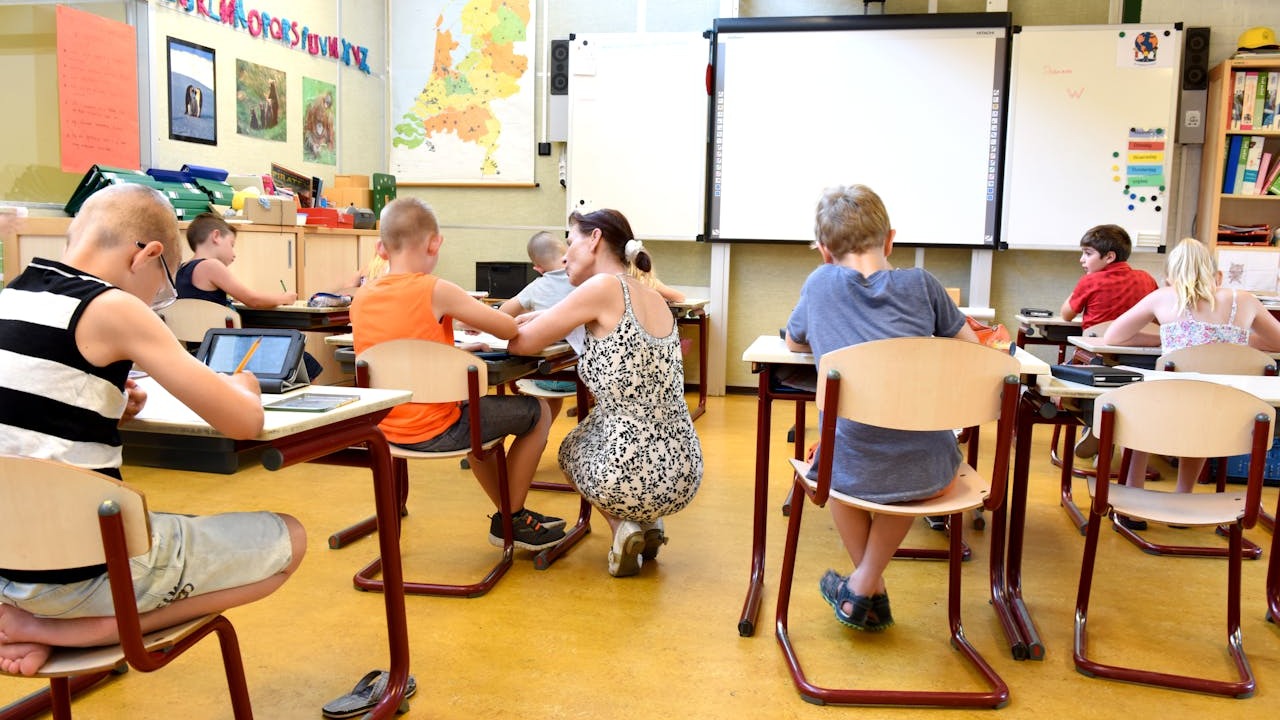Science
China Conquers Space: First an Asteroid, Then a Distant Comet
15 July 2025

One of the frequently articulated expectations placed upon contemporary education is the need to equip students with knowledge and skills related to the process of learning. A potential solution to address this requirement is metacognition – a form of reflection that facilitates understanding, analysis, and control of one’s cognitive processes. This model enables individuals to identify their strengths and weaknesses, devising strategies most beneficial for the learning process and personal development.
The meaningfulness of learning becomes apparent when we witness its effects and the benefits it yields. These effects are not evident when the sole confirmation of our efforts comes in the form of grades or certificates. What truly matters is development – a noticeable change validated by acquired competencies and more effective performance. Therefore, it is essential to ensure that daily self-improvement efforts are accompanied by appropriately conducted reflection.
Students learn more effectively and are more motivated when they understand what contributes to achieving expected results and what may hinder their progress. Hence, it is imperative to ensure that they can and are willing to analyze how they learn and what the outcomes of their learning are. Metacognition can greatly assist in this regard, emerging from individual experiences and research explaining the methods used to expand one’s knowledge. The American psychologist and Stanford University professor, John H. Flavell, who explored this concept, noted distinct deficits in metacognition in young children. Preventing such deficits is crucial, as acquiring competence in this area significantly contributes to increased learning effectiveness and better overall development.
Formally speaking, the learning process encompasses three sequential steps:
Indeed, learning is not confined to memorizing specific knowledge or acquiring a set of desired skills. Rather, it involves practicing various methods of cognition, encompassing information processing and creative problem-solving. Therefore, it is crucial for students to gather experiences and develop competencies crucial for recognizing the costs and real benefits of their development accurately. This empowers them to be aware of how to best engage, utilize the resources they have generated, and seize opportunities for action.

The primary goal of metacognitive practices in schools is to foster reflective thinking that helps students understand the processes involved in acquiring knowledge. This aids them in identifying their strengths and weaknesses, and in developing the most effective strategies for specific situations. The traditional structure of a lesson involves covering a topic without necessitating reflection on the utility of the work done collectively. Students remain uninformed about the purpose of the last 45 minutes spent in class. Moreover, the teacher often does not seek to understand if what was offered to the students was in any way useful. Once a topic is covered, the next lesson moves on to another, and that is all.
The most effective learning comes through experience – making mistakes and drawing conclusions. Reflection accompanying this process is a powerful tool in the practice of learning. It influences our development, strengthens our sense of agency, and enhances positive self-perception. It demonstrates the utility of learning and builds the conviction that lifelong learning is worthwhile.
The creation and practice of metacognition in the everyday process of gaining knowledge should be accompanied by the following questions, which every student should ask themselves:
These are also questions that teachers, in relation to their students, should ask themselves before a lesson. The task is considerably more challenging for teachers, as they generally need to consider dozens of individuals simultaneously. Despite these challenges, supporting metacognition in all students is valuable. This can be achieved by:
Metacognition in school practice is not just about identifying one’s resources, but primarily about developing competencies in learning itself. When I understand why I am learning, I can recreate what I did, how I did it, and its effectiveness in achieving a set goal. I am aware of the outcomes, as well as their causes and costs. I learn how best to learn and how I can decide on my own development.
We recommend: Transforming Education Through Collaborative and Cooperative Learning
One competency worth cultivating in modern education is critical thinking, especially reflection on one’s engagement in personal development. For such reflection to be feasible, it is essential to enable students to focus on both the process and outcomes of their work. The desired effect is most readily achieved by precisely defining the goal and then presenting results that confirm its attainment. The goal itself should be articulated in terms of outcomes. This means we should not talk about what needs to be done, but rather about the specific state we aim to achieve. In this context, the language of instructions plays a crucial role.
Phrases like ‘list,’ ‘describe,’ ‘compare,’ ‘estimate,’ ‘determine the value,’ ‘explain the utility,’ and ‘list possible applications’ should be employed. Depending on a student’s predisposition, they can be offered a way to achieve a chosen goal or expected to propose their solutions. In both cases, the process is crucial. The student’s task is not just to complete the assignment but to be attentive and analyze the effectiveness of their actions. It is beneficial when a teacher not only checks the alignment of the result with the intended outcome but also takes time to understand the logic guiding the student’s engagement in specific activities. Encouraging students to evaluate their work and asking what they learned from it is valuable.
Similarly, teachers themselves should work in this manner. When heading to a lesson, they should know what the outcome of their work with students will be. They need to understand how to achieve the expected results and how to subsequently verify the outcomes. Teachers should have several proposals for solving the problems their students face and always plan time to discuss the results in a suitable form, confirming the utility of the process undertaken. This approach to teaching is also an act of metacognition. Just as a student learns to learn, a teacher learns and deepens their reflection on methods to support the development of their students’ skills.
In daily practice, metacognition can be implemented using two models that are very useful in the context of developing teaching competencies. The first is based on the analytical use of Kolb’s cycle, while the second utilizes principles of reflective practice developed by Donald Schön.
Learning and Experiencing
Kolb’s Cycle, previously a foundational model in adult education, is increasingly being applied in teaching children and adolescents. It is particularly valuable for analyzing and reflecting on the phenomena accompanying students’ learning. Kolb asserted that education is not just about absorbing content, but primarily about integrating learning outcomes with experience. Four areas of reflection can be identified, relating to:
When planning classes and exercises, it is important to connect to students’ knowledge, beliefs, or life experiences. Students should build hypotheses or research objectives based on these. They should conduct experiments to verify their assumptions and reflect on the results obtained, seeking new applications for this knowledge, even in other subjects and outside school. At the metacognitive level, reflection involves questioning the assumptions of a project, planned outcomes, chosen forms of inquiry, verification, and confirmation of results, as well as proposing new concepts confirmed by common knowledge and personal experiences.
Reflective Practitioner
Donald Schön is the author of the concept of the teacher as a reflective practitioner. This concept entails a dual insight into the course and effects of one’s work. The first occurs during direct action (reflection in action), and the second accompanies observation and analysis of the outcomes of that action (reflection on action). This is a crucial tool from the perspective of organizing and managing the learning process of students. It makes educators aware of the objectives, methods, and outcomes of actions undertaken by learners. It also shows teachers what works and what needs to be changed in their work with students. Through reflection, it is easier to recognize differences in individual predispositions and preferences, thereby tailoring classes to the capabilities and limitations of students.
We recommend: Inclusive Education: What Is It and Why Is It So Important?
Donald Schön believes that reflection constantly accompanies teachers. The daily challenges they face in school are complex enough that routine and top-down solutions may not suffice. The factor of metacognition allows – especially in decidedly unusual situations – to define the essence of the problem and then propose the most optimal method for its resolution. The key here is determining the real problem. Being aware of the nature of the issue at hand, enriched with knowledge about achieving the best effect, enables finding and implementing the most effective solution.
The essence of learning is not mastering the material necessary to pass an exam. It is primarily a process of self-improvement and maturation. Hence, it is important not so much to learn what ‘must be learned,’ but rather to understand oneself. Working on oneself means developing existing resources and acquiring new ones. In pursuing self-knowledge, we simultaneously discover how we can personally influence the reality around us.
Translation: Klaudia Tarasiewicz


Science
13 July 2025

Zmień tryb na ciemny